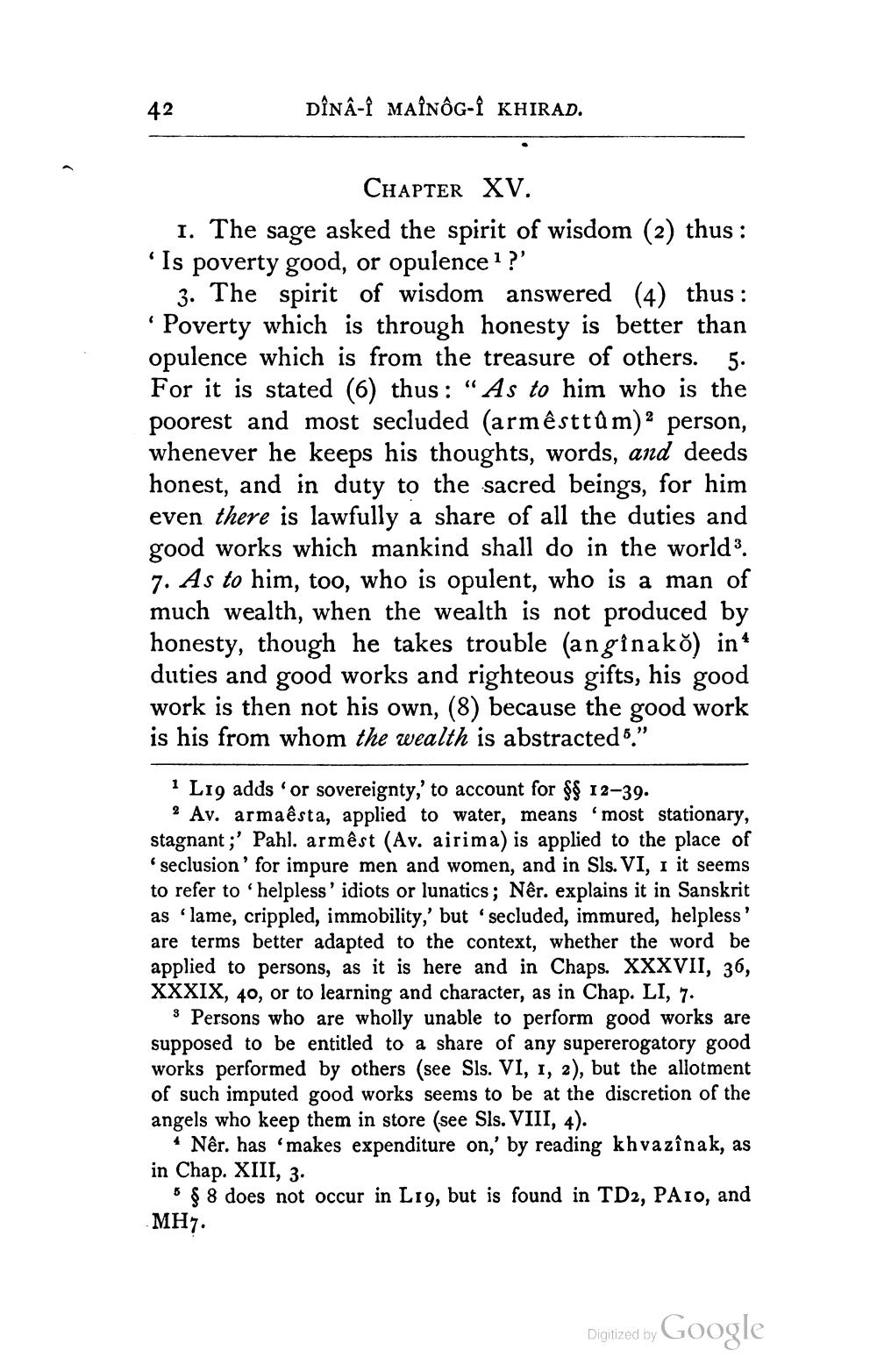________________
DÎNÂ-Î MAÎNÔG-I KHIRAD.
CHAPTER XV. I. The sage asked the spirit of wisdom (2) thus : 'Is poverty good, or opulence 1 ?'.
3. The spirit of wisdom answered (4) thus : Poverty which is through honesty is better than opulence which is from the treasure of others. 5. For it is stated (6) thus: “As to him who is the poorest and most secluded (armêsttům) person, whenever he keeps his thoughts, words, and deeds honest, and in duty to the sacred beings, for him even there is lawfully a share of all the duties and good works which mankind shall do in the world3. 7. As to him, too, who is opulent, who is a man of much wealth, when the wealth is not produced by honesty, though he takes trouble (anginako) in duties and good works and righteous gifts, his good work is then not his own, (8) because the good work is his from whom the wealth is abstracted 6."
1 L19 adds or sovereignty,' to account for $$ 12–39.
? Av. armaêsta, applied to water, means 'most stationary, stagnant;' Pahl. armêst (Av. airima) is applied to the place of
seclusion' for impure men and women, and in Sls. VI, i it seems to refer to 'helpless' idiots or lunatics; Nêr. explains it in Sanskrit as "lame, crippled, immobility,' but secluded, immured, helpless' are terms better adapted to the context, whether the word be applied to persons, as it is here and in Chaps. XXXVII, 36, XXXIX, 40, or to learning and character, as in Chap. LI, 7.
3 Persons who are wholly unable to perform good works are supposed to be entitled to a share of any supererogatory good works performed by others (see Sls. VI, 1, 2), but the allotment of such imputed good works seems to be at the discretion of the angels who keep them in store (see Sls. VIII, 4).
Nêr. has makes expenditure on,' by reading kh vazînak, as in Chap. XIII, 3.
o$ 8 does not occur in L19, but is found in TD2, PA10, and MH7.
Digitized by Google




